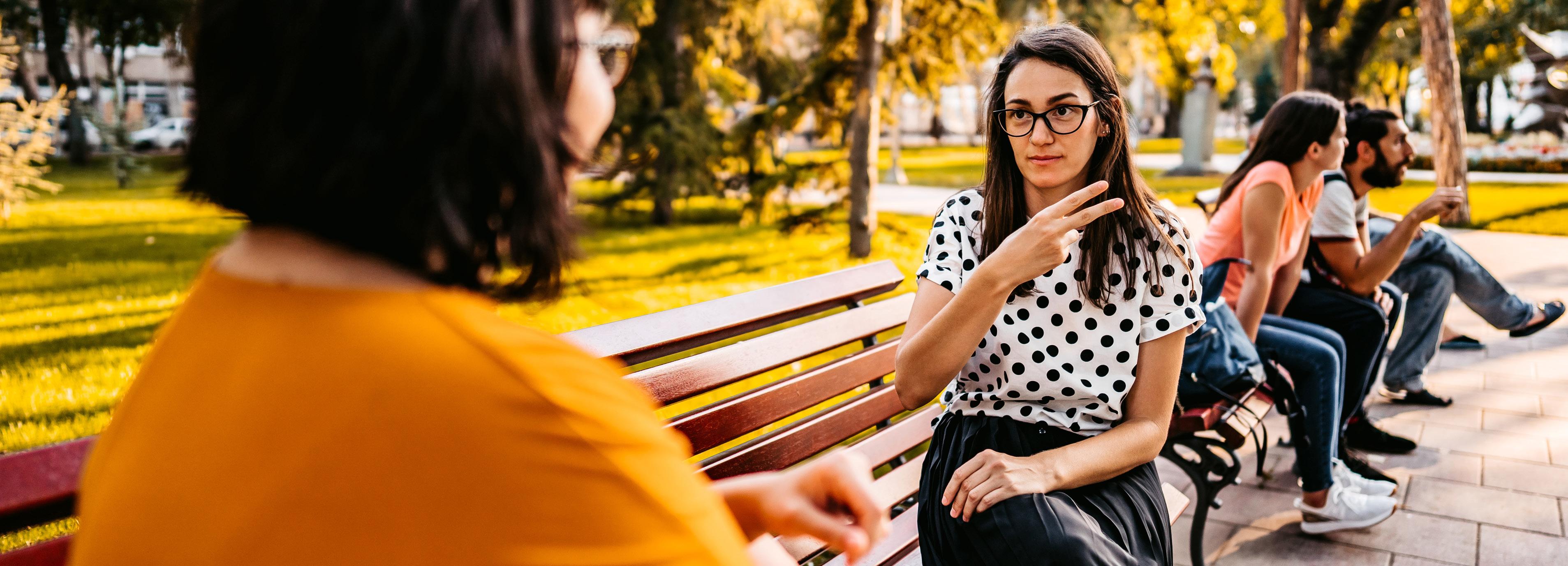

Health Home Herald Newsletter
Did you know that if you did a google search for “case management in Washington state”, that it routes you to the Office of the Deaf and Hard of Hearing website? I recently met with Hope and Michael from ODHH to learn more about their office and what services are provided.
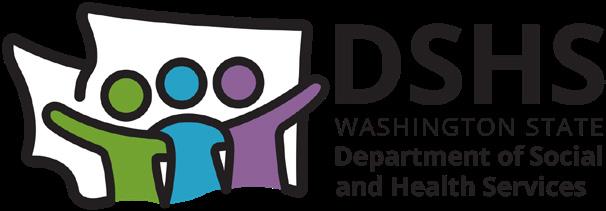
Supporting Our Clients with the Office of the Deaf and Hard of Hearing
Michael Fox, ODHH Hard of Hearing Consultation & Resources Program Manager, Hope Crumley, ODHH Case Management Field Supervisor, & Kerri Hummel, HH QA Specialist
Did you know that if you did a google search for “case management in Washington state”, that it routes you to the Office of the Deaf and Hard of Hearing website? I recently met with Hope and Michael from ODHH to learn more about their office and what services are provided.
ODHH is an office within Home and Community Living Administration that has provided services for more than 30 years to all Washingtonians with hearing loss or a speech disability.
ODHH’s Direct Services includes:
• Case Management Services
• Hard of Hearing Consultation
ODHH offers programs and services for Deaf, DeafBlind, DeafDisabled, and individuals that are Hard of Hearing, Late Deafened, and have speech disabilities. We also work with service providers in Washington state to ensure that services and resources are accessible and inclusive to our diverse communities.
• Support Service Provider Services
• Communication Facilitator Services
• Family Mentor Services
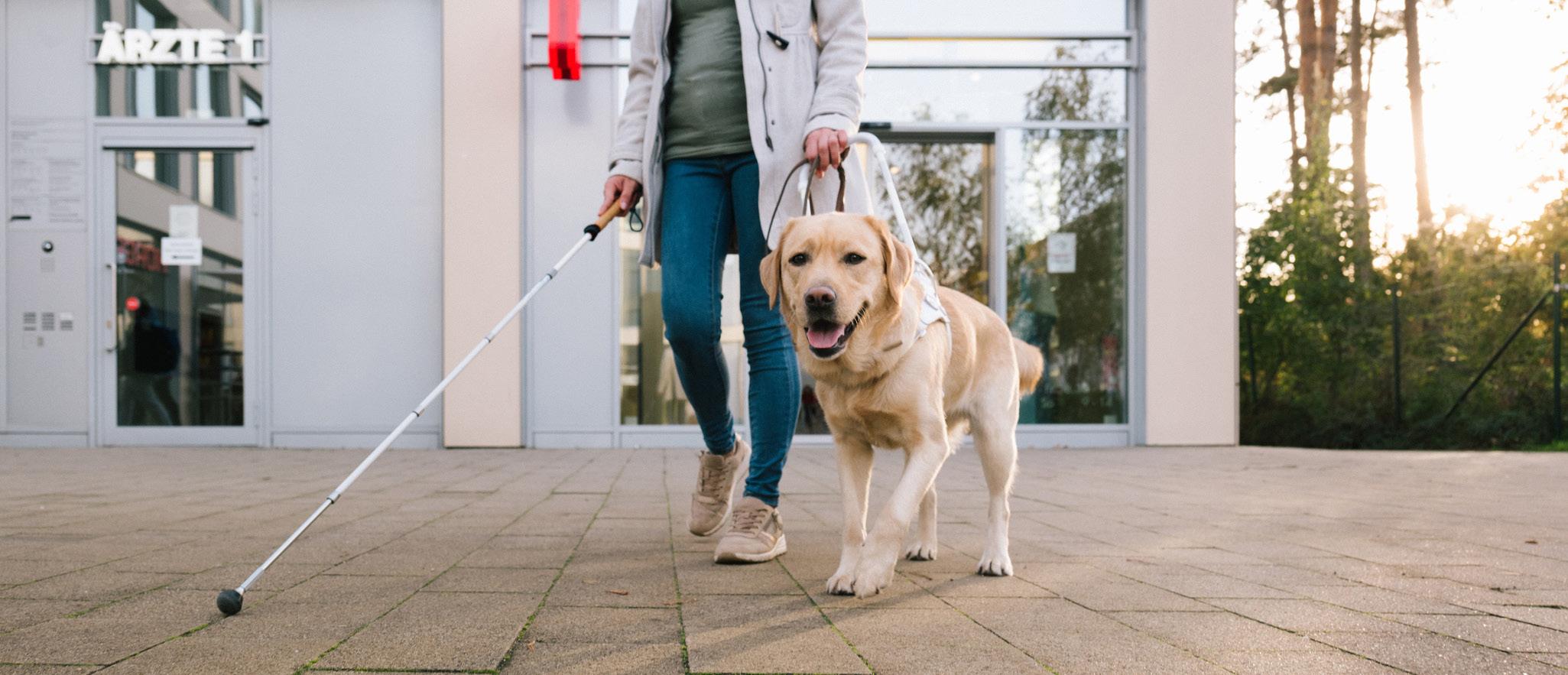
Advocacy
ODHH advocates for the rights, interests, and needs of individuals in our community. The Office works to eliminate communication barriers and promote equal opportunities in various service areas, including training, consultation, contract management, information and referrals, and resources to promote communication equity. Here is an example of Advocacy:
“I have been working with a Senior Medicare client in Auburn. The client takes good care of her health by following a healthy diet and goes to the YMCA weekly to swim laps. She came to ODHH dealing with a difficult PCP who she said was insensitive to her Deaf Cultural needs, talking over the interpreter and yelling. The client was down about the situation, but she did not want to change her clinic. I provided education on ADA; explained limitations with PCP visits as the client tends to be talkative and share excessive details. We developed a script together and did rehearsals. I encouraged her to focus on three things to relay to her PCP and have a pre-written note ready. We discussed using the medical chart app, how to get information from the app, and encouraged her to ask for a nursing manager so she can have longer discussions.
Last week, she used the skills to explain her needs and focus on topics: 1) The need to let interpreter finish before PCP moves on and to make sure the client understands, 2) The need to not block the Video Remote Interpreting and that the client prefers to control the VRI so she can see the interpreter, “It is not necessary for you to see the interpreter but I need to see it to understand you.” and 3) Request that if PCP is not able to meet her need that she be transferred to another PCP.
The PCP apologized profusely and mentioned she did realize the client was Deaf. The client showed patience and stuck to her value of needing clear communication. She reported that the PCP was more cooperative and performed better. She also mentioned that the PCP was mortified when she learned that the interpreter was translating everything, including the volume and tone of her speech. The client stated, “I feel strong and smart, and I feel I did the right thing--I feel like I now understand my health needs and got my questions answered in a professional manner. Thank you for teaching me how to deal with her”.
Coordination
ODHH is a centralized resource. The Office collaborates with governmental, business, and community stakeholders to develop and implement policies, programs, and initiatives that address and ensure that state services and resources are accessible and inclusive to all Washingtonians. Here is an example of Coordination:
“I had received a message from a senior citizen in need of hearing aids. The only insurance coverage was Medicare, which lacks coverage for hearing aids. They were able to complete an application with the Lions Sight and Hearing Program. After approval, they were able to receive a pair of hearing aids at no cost”.
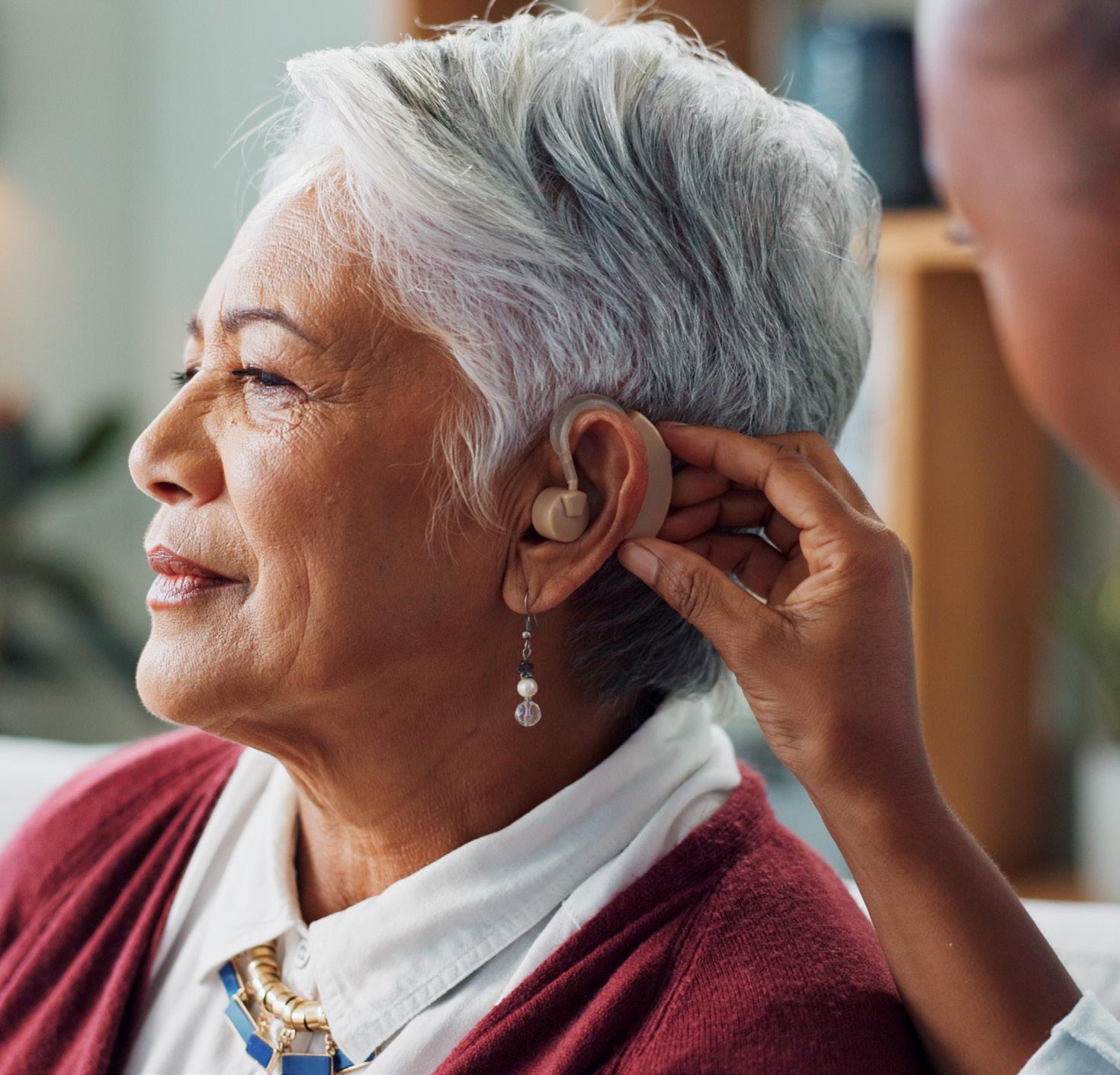
Communication Access
ODHH promotes effective communication by facilitating the provision of American Sign Language interpreters, captioning services, assistive listening devices, and other auxiliary aids for Washingtonians. Here are two examples of Communication Access:
“An individual called to ask about assistive listening devices besides hearing aids. The client had already purchased a pair of AirPods Pro 2 with the goal of using them as hearing aids. We were able to meet at one of the rural libraries to set up AirPods Pro 2 with his smartphone. The client was able to use the hearing aid feature to amplify sounds around him, pair with his Apple TV streaming device, and use it for phone calls”.
“One of our case managers reached out to resolve a technical issue with a client’s iPad that they had received from Telecommunications Equipment Distribution. We were able to meet with the client to troubleshoot why it was not updating and unable to access multiple functions. We were able to correct the problem to ensure it was functioning to make and receive videophone calls”.
Distance Communication Support
ODHH provides the Washington Relay program and the Telecommunication Equipment Distribution Program to enable clients to make telephone calls. Here is an example of Distance Communication Support:
“Client received a smartphone (iPhone) from the TED program. She had some technical issues setting up her device to allow for captions during phone calls. We were able to meet at a local library to go over the different accessibility features on the iPhone, enable live captions, and practiced calls to test the captions to ensure they were working during the call. The client was able to pair her hearing aids via Bluetooth to be able to listen and follow captions to avoid missing information during phone calls”.
Education and Outreach
ODHH conducts outreach programs, workshops, and training sessions to raise awareness, improve understanding, and foster sensitivity towards the needs of the communities the office serves. The Office actively engages with educational institutions, employers, and service providers to promote accessibility and equal opportunities. Here is an example of Education and Outreach:
“A client requested that a case manager come to her home and fix her phone, so she didn’t have as many “scam likely” calls. Her comment was that she did not know technology, and she was so frustrated with all the calls; she wanted the case manager to come to her house immediately. On the video phone call, the case manager was able to walk her through the steps to block the calls on her phone, and she successfully blocked eight different phone numbers, “Next time, I can do it myself”.
Policy Development
ODHH actively participates in and provides expert insight and guidance to contribute to the development and review of inclusive policies, regulations, and legislation affecting the communities we serve.
Resource Referral
ODHH maintains a directory of resources, including support groups, service providers, technology solutions, and assistive devices. This directory serves as a tool for connecting Washingtonians with appropriate services and assistance as needed.
Contact: 800-422-7930 (Voice), 425-461-4603 (Videophone), or email at odhh@dshs.wa.gov
Please visit Office of the Deaf and Hard of Hearing | DSHS for more information.
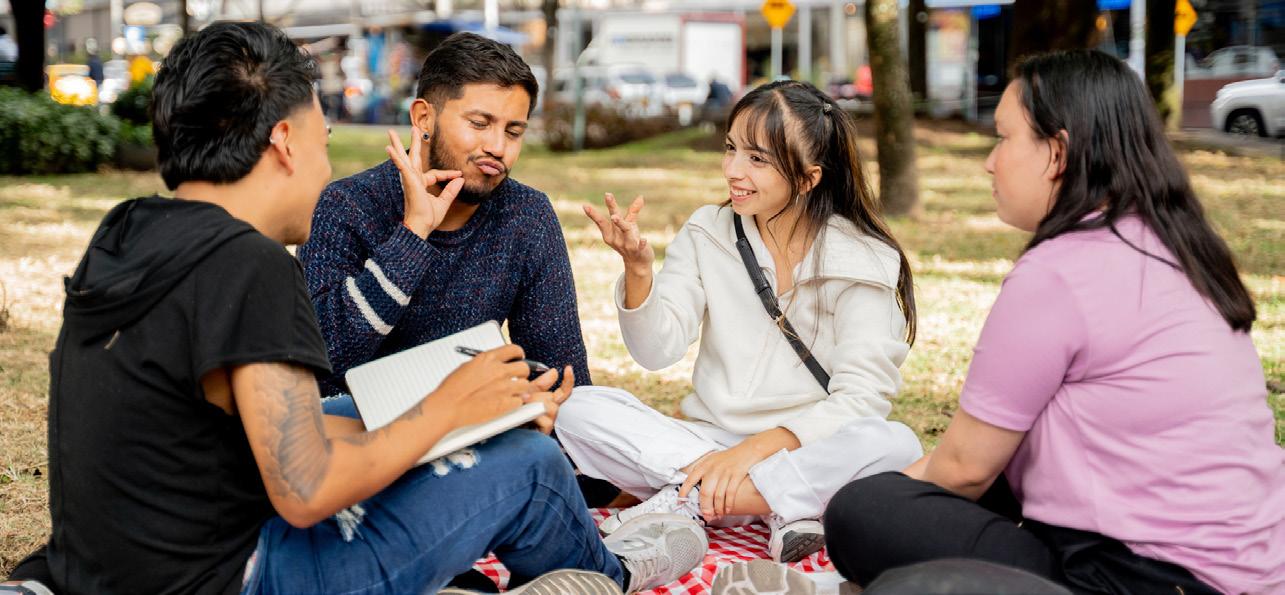
Participant Portrait
Lead: Molina | CCO: Rural Resources | CC: Tahnee Runions
The member was living in a shed when HH Outreach first found him. Struggling with mental health, medical, and memory challenges, he was hard to reach and connect with. He had no income for necessities, like food, a phone, or other essential items. Despite these challenges, our care coordinator Tahnee Runions made contact and established a HAP.
Shortly after she managed to engage him, the member experienced a health episode and somehow ended up in California, though he couldn’t remember how. Afterward, he made his way back to Washington. His shed was no longer available, so he began living under a bridge. What little the member had left was mostly gone except for Tahnee’s number so he called her.
The journey to stability for this member was not easy. His time out of state meant he had to start from scratch, reapplying for all services. Tahnee worked diligently to help him apply for Social Security, ABD, food and housing assistance. About six months later, ABD benefits started coming through. Although the amount was modest — just over $400 a month — it was sufficient for him to stabilize enough to establish a primary care provider. With Tahnee’s help in finding one he trusted, progress truly began.
After more than a year of navigating these services, he finally became housed, a monumental achievement given the lack of housing in rural SE WA and his modest income. Collaborating with Shelly from the Southeastern WA Alliance for Health was key in making this happen.
Today, he is seeing both a psychiatrist and counselor, continues to address his medical concerns with his PCP, and has even earned his driver’s license. He now has a caregiver, has dental work for dentures in progress, and his high blood pressure is better managed. His future goals now include to quit smoking.
The ABD and HH programs played pivotal roles in empowering him to stay on track with his appointments and access the resources that ultimately led to stable housing and improved health. The benefits acted as a crucial steppingstone, giving him the support he needed to break through barriers and take control of his life again.

What Does it Mean to be Dually Eligible?
Vanessa Sherrill, Medicare-Medicaid Integration Program Manager DSHS ALTSA/HCS
Who is a Dual Eligible?
If you meet the eligibility requirements for both state Medicaid and federal Medicare insurance, you are dually eligible. When you are dually eligible, federal Medicare is your primary health insurance coverage and state Medicaid is secondary coverage.
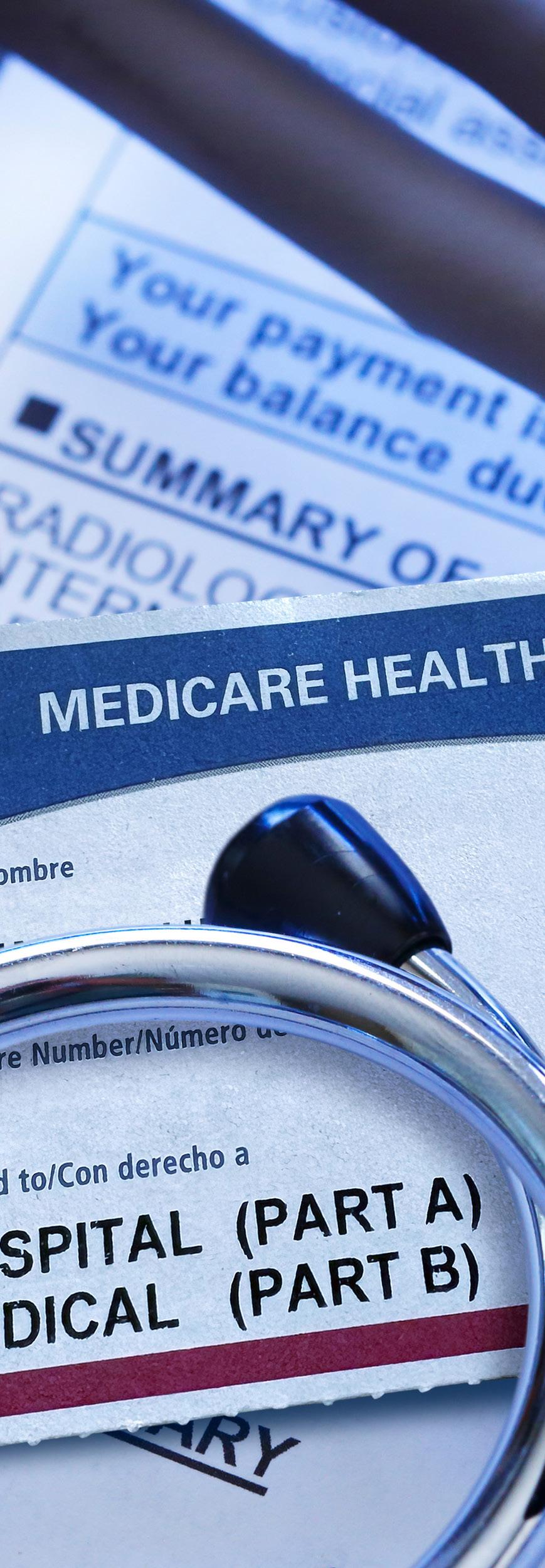
What is a Dual Eligible Special Needs PLAN?
DSNPs are a type of Medicare Advantage Part C plan that are designed to better meet the health care needs of dually eligible individuals. These plans offer supplemental benefits and services not covered by traditional Medicare. Some examples of supplemental benefits and services:
• Monthly cash card allowance
• Dental
• Hearing
• Vision
• Transportation services
• Fitness memberships
Look at each DSNP to see what each plan offers to determine which plan best meets your healthcare needs.
Important to know: you will have both a Medicare Advantage DSNP card and a Medicaid Provider One services card. Take both to your appointments to ensure your healthcare providers know you have both Medicare and Medicaid.
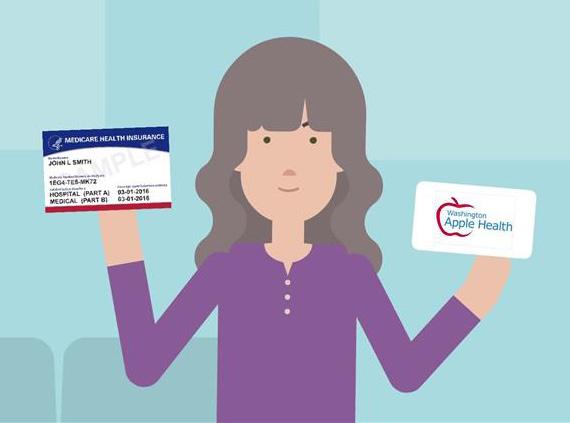
For additional information please visit our Dual Medicare-Medicaid webpage.
For help reviewing plan options and help enrolling in a DSNP call SHIBA 1-800-562-6500.
To explore your Medicare Advantage health coverage and Medicare Part D prescription drug plan options, use the Medicare Plan Finder tool or contact the Medicare Advantage health plan directly, for a list of all MA health plans and their phone number.
Silke Kramer, Health Care Program Manager
July is an important month as that is the time we celebrate the diversity of the disability community, as has been done for the last 34 years. We also want to take the opportunity to recognize the accomplishments of people with disabilities.
The Americans with Disabilities Act was signed into law in 1990 and since then, Disability Pride Month happens every July to mark the ADA’s anniversary. The first celebration took place in Boston.
Disability Pride Month is full of so much to celebrate, and we should all be on a mission to elevate Disability Pride together. We need to learn to not only talk about disability but also how we can celebrate the resilience that comes with it.
Disabilities can be a large range of illnesses. However, it is important to recognize that, contrary to the societal norm, disability should not be seen as existing “without.”
We each have an opportunity to learn from disability activists — this month and all year long — to broaden our perspectives and deepen our understanding of the challenges faced by people with disabilities. These activists are determined to challenge societal barriers, dismantle ableism, and display the power of this community.
Below are some notable activists. You can follow the links provided to learn more about each and their accomplishments.
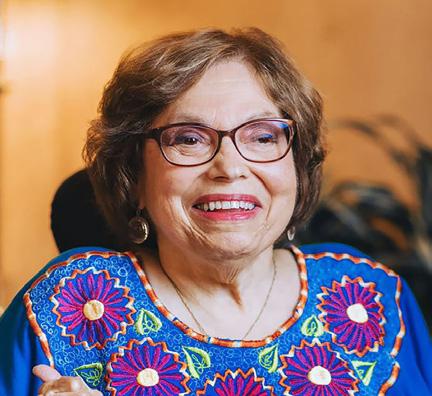
Judy Heumann paved the way for disability justice in the United States.
Judith “Judy” Heumann (1947-2023) was an internationally recognized disability rights activist, widely regarded as “the mother” of the Disability Rights Movement. Judy’s story is featured in the Oscar-nominated documentary Crip Camp: A Disability Revolution and her book, Being Heumann: An Unrepentant Memoir of a Disability Rights Activist.
Learn more about Judy Heumann.
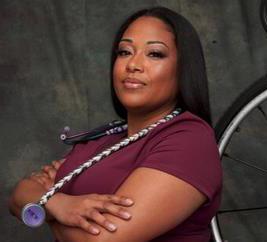
Andrea Dalzell
is the first registered nurse in a wheelchair in New York state.
Diagnosed with transverse myelitis at five years old, she has since been committed to changing the narrative around disability. The creator of The Seated Nurse, she uses her platform to show that disabled healthcare professionals exist, too. At the height of the pandemic, Dalzell was right on the frontlines.
Learn more about Andrea Dalzell.
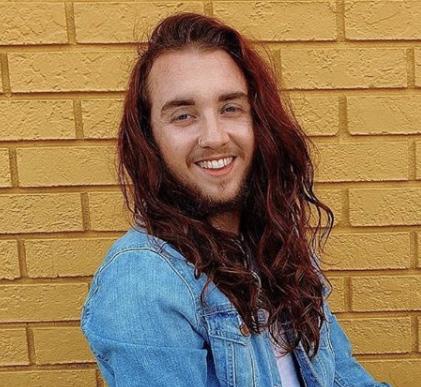
Julian Gavino
is a disabled trans writer, model, and influencer. Coming out as trans as a teen, their queer identity and disability are wholly intertwined. Gavino has Ehlers-Danlos Syndrome, which affects most of their body. During the pandemic, they highlighted how dangerous and continuously disabling it had been for their community. On their Instagram, they shared with over 68,000 followers about their time in the hospital due to complications with their feeding tube. As a result of COVID-19 supply chain issues, they could not maintain regular use of this life-saving device.
Learn more about Julian Gavino.
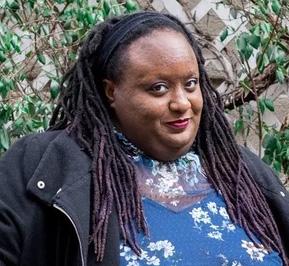
Imani Barbarin
a Black woman with cerebral palsy, is an influential figure known for her blog, Crutches and Spice, and her significant impact in creating conversations around disability. As the creator of the hashtags #ThingsDisabledPeopleKnow and #AbledsAreWeird — and many more — Barbarin has facilitated honest and vulnerable conversations within the disabled community.
Learn more about Imani Barbarin.
Our society still has a long way to go when it comes to dismantling the negative connotations around disability.
For the month of July let’s all celebrate the diversity of the disability community and recognize the accomplishments of people with disabilities. During this month everyone should raise awareness of the challenges people with disabilities face and advocate for equal rights and opportunities.
Care Coordinator Corner
Lead: NWRC | CCO: NWRC | CC: Andy Brown
This client has been in the Health Home program since October 2024.
She had a goal of getting new eyeglasses but could not afford to buy them. She had obtained an eyeglass prescription but was unable to order glasses online.
During their monthly home visit the care coordinator utilized his laptop to assist the client in selecting frames online. The care coordinator also helped her to navigate the New Eyes website in order to enter her debit card information ($10) and requested the voucher for reduced cost glasses. The care coordinator received notice of the approved voucher and ordered the client’s eyeglasses.
The client is very excited about getting new glasses with her preferred frames.
Submit your story, resource, or ideas to the Care Coordinator Corner via: anthony.foster@dshs.wa.gov
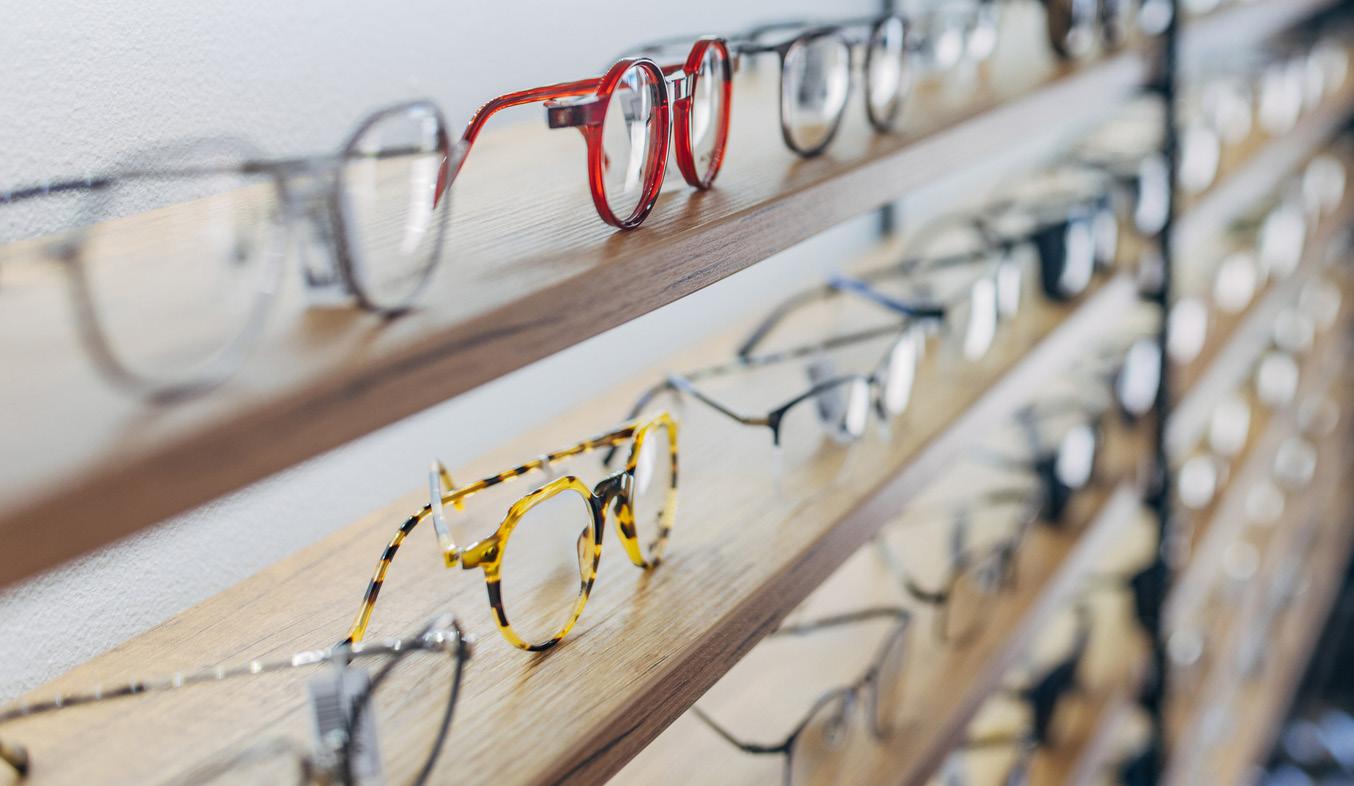
Rena Cleland, RN
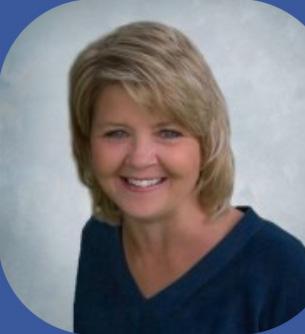
Molina Member Honor Profile
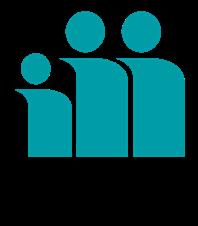
This first Molina Member Honor Profile is in honor of retiring Molina of Washington’s Health Home Director, Rena Cleland, RN. A respected people and program leader with inspiring vision and strong management skills, Rena used, honed and shared her gifts to serve as Molina’s first HH Director during its inception and maturation years. Rena retired after almost 12 years of service this June. Well done, Rena.
MOLINA HONOR PROJECT: Profile Interview 1
Health Home is Helping One Member Care for 28 Foster Children!
This article is part of a Molina Care Coordinator’s “Honor Project” that highlights individual Health Home member “Goals” (as in Health Home goals), “Gifts” (unique abilities, personalities and skill), and “Grit” (as in perseverance).
Have you ever wondered how some of our Health Home members keep going?
Our member’s Health Home “Goal,” the core of the entire Health Home program, can contribute to that inner hope. Yet the unique “Gifts” and perseverant “Grit” of each member help that goal become a success.
We honor those Goals, Gifts, and Grit of our members, and in turn are honored, as Care Coordinators, to help support our members.
…people like Emily* - who we were able to interview recently:
Emily has Fibromyalgia and a leaking heart. Coming from a large family, she dreamed of having a large family herself. But after four miscarriages, she and her husband turned to foster care and so far have taken in 28 children. Their home is currently filled with a total of six children including two biologically born, a former foster/adopted child, two new foster kids and a relative’s child.
She co-founded a foster parent association to support the foster care system and is launching a podcast to tell the stories of families and professionals, and address many of the issues she’s observed in the foster system along the way.
Emily, what motivates you to keep moving forward?
Since the kids are my main priority, I must focus on health issues and goals for the future. I want to avoid my fibromyalgia affecting my daily routine as a busy mom. I don’t just want to sit in bed all day. My life is my kids, and I do not want anything to get in the way.
How do you do it?
From what I’ve gone through and experienced my entire life, it is important to have a support system that respects who you are and tries to support what you are going through - mentors and others who support your goals and dreams and all that is medically going on. It is really great to know you are not alone.
(continued on next page)
MOLINA HONOR PROJECT: Profile Interview 1
(continued from previous page)
How is your Health Home goal helping you out?
I’ve needed to learn how a mother can handle fibromyalgia, her children, 28 foster children - and still stay sane…so I decided to use my goal to research and develop a pain management plan and better advocate for myself with my doctors. Even if I do not understand medical terms, I am willing to do the research so I can respect certain things I can and cannot do. For instance, I thought my being allergic to onions was a joke. But I am learning about recipes for foods I and my family can all eat…so we all have adjusted.
Why are you taking this time to share your thoughts with others in Health Home?
I feel it is important to get information out about our health (what has worked and what has not), how to manage it with kids, connect with others and express how we are not alone. Sharing goals and ideas is awesome. I’d also be interested in the opinions of others.
You have a few other things you’d like to share with other Health Home members…
For the longest time, I never did anything for myself, focusing on everything else, but my health deteriorated. I kept asking WHY I could not? I thought, “There is no time or money.”. But I have learned to take time for myself. Even if for just 10 minutes, it helps me so I can take care of my kids in a positive manner. As I said, the kids are my main priority, so I must take periods of time I did not before, including meeting with a life coach. It may even just be certain times like going for a walk. Nature is very relaxing. And once a month, I find someone to watch the kids, and I focus on what I enjoy. My husband does the same.
Whatever the thing you are facing, whether as a foster parent or anything else, anyone needs to realize you are still capable of doing things even with pain - it is not impossible…and you can be an amazing parent regardless.
We hear all the time: “I don’t think I can do it.” You need to realize you can do it if you put your mind to it -if you enjoy it. There will be hiccups. But it does not mean you are not good parents; you are just going through a rough patch.
As long as you get stable, then anything is possible.
What has Health Home meant to you?
I needed a prod to contact my doctor to better understand my Fibromyalgia. It has been nice to have the support to guide me in the right direction. Sometimes I just don’t know where to go or where to start. This has given me a support system to guide me down the right path and get started. I appreciate having someone there to walk beside me to better health. It feels pretty good.
Besides Emily, there are so many more...
…mushroom grower Gary (using his Health Home goal to grow his hobby into a business for his future safety net, or formerly bed-ridden Karen whose goal is starting a new life as she learns to get out and master her oversized power wheelchair – ordering mochas while navigating drivethrough lanes at a local coffee shop -yes, in her chair!, or Andy with severe cancer, but a positive attitude a mile long as he works toward his goal of setting up a studio to carve wooden crosses to give to friends.
We honor Emily and our other members, and hope to profile more in future Herald issues!
Molina has contributed to Washington State’s Health Home program in its unique way of working collaboratively with internal teams of visiting nurses, behavioral health and substance use disorder case managers, Medicare and DSNP specialists, community connectors, medical directors, and a president who is an MD himself…and through such resource programs as free adult eyewear, health screening awards, and complementary home delivered meals for those discharged from hospital stays.
*Emily is a fictious name for this member, to protect her privacy.
-Prepared by Rena’s colleagues at Molina Healthcare Inc.’s Health Home team

Rebus Puzzle Monthly Webinar Invitations
Can you solve these summer themed Rebus puzzles?
The Health Home Program offers learning topics for new Health Home Care Coordinators. Check out our current invitation.

PRISM Access Reminder:
Please be sure to log into your SAW account every 30 days, enter the PRISM application, and click on at least one of your assigned clients so that you will continue to have uninterrupted PRISM access.

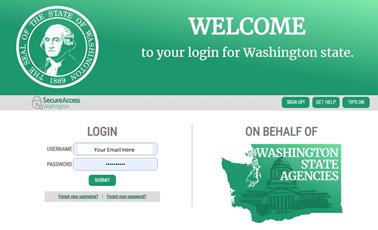
Blue Skies
Sunglasses
Beach
Sandy
